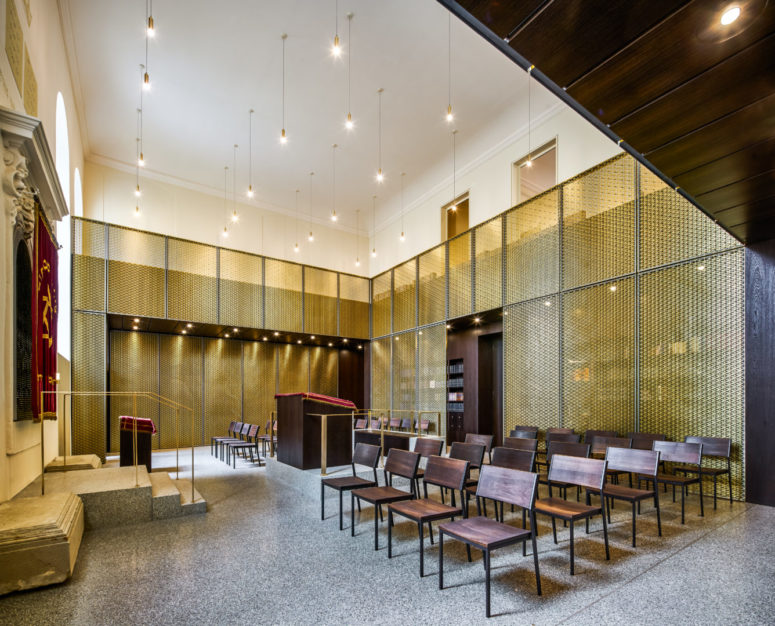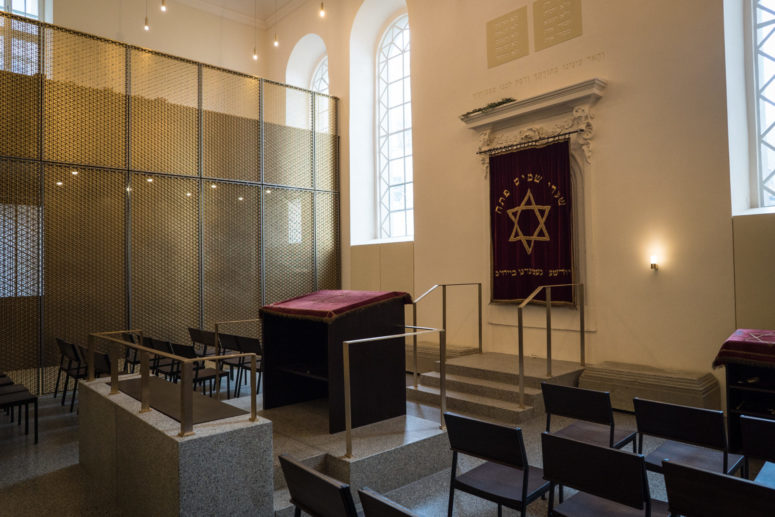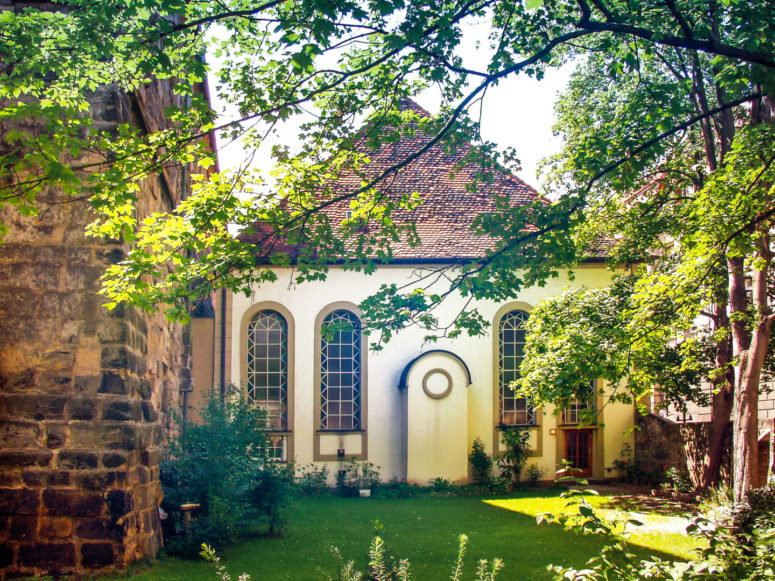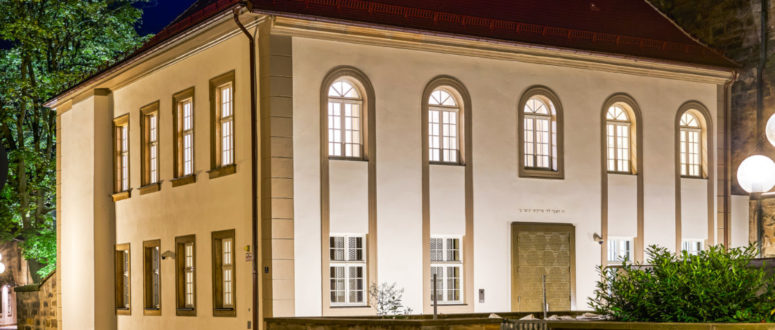Jewish history in Bayreuth can be traced back over 800 years. Founded in the 13th century, the Jewish community currently numbers around 500 members once again.
1,700 years of Jewish life in Germany – 800 years of Jewish history in Bayreuth
An edict of the Roman Emperor Constantine dating back to the year 321 is the oldest surviving testimony to Jewish life in Germany. The history of Bayreuth’s Jewish community stretches back to the Middle Ages. Since the 13th century, evidence of its existence can be found – but also evidence of the persecution of Jews in Bayreuth. It was not until the era of the margravial couple Friedrich and Wilhelmine that a Jewish community could be re-established in 1759 by the court banker and coin supplier, Moses Seckel. The current major project surrounding Bayreuth’s recently renovated synagogue, the oldest working synagogue in Germany, with its mikvah and the Jewish cultural and community centre currently being established is Bayreuth’s contribution to the anniversary year, 2021.
Synagogue
The Baroque synagogue from 1760 is the oldest operating synagogue in Germany. Originally planned as a comedy house for the margravial court in 1715, the synagogue was reopened in 2018 after its restoration.



Situated shoulder to shoulder with the UNESCO World Cultural Heritage Site, the Margravial Opera House, a new ensemble is currently being built around the synagogue: the modern mikvah, the ritual immersion bath, was completed in 2013 and is – according to London specialist Rabbi Meir Posen -“the purest mikvah in Europe”, fed by an artesian well. Across the street, in the building of the former mint which dates from 1778, a new Jewish Cultural and Community Centre is being built. It will house museum rooms, an archive, a library, a kosher café and rooms for the Jewish community. The genizah, found in the attic of the synagogue during initial renovation work in 2010, some of whose artifacts date back to the 16th century, will be on display in the Jewish Cultural Centre and Museum after its completion.
Inaugurated in 1787, the Jewish cemetery in Bayreuth with its almost 1,000 graves has been used and maintained by the Jewish community without interruption to this day. The cemetery is home to a remarkable Jugendstil Tahara. To date, it only opens its doors to the public on 9 November for the annual commemoration ceremony which is also accompanied by a guided tour. Thanks to three years of inventory and research work conducted by the University of Essen’s Salomon Ludwig Steinheim Institute, pictures and descriptions of all of the graves are now accessible online in the epigraphic database.
Further information
More information on the history of Jews in Bayreuth can be found in the free city map “Jewish Bayreuth” and the book of the same name.
The Bayreuth City Archive hosts a variety of information material on the Jewish history of Bayreuth in digital form. In addition to a bibliography and an inventory of the archive’s extensive items, a chronological overview of Jewish history in Bayreuth can also be accessed here.
During the summer semester of 2021, students from the University of Bayreuth developed some multimedia content on the topic of “Jewish life and Jewish culture in Bayreuth”. This content is now being made available as an “app”. The interactive website or app offers you insights into Jewish Bayreuth:
App on Jewish life in Bayreuth
Silenced voices in the Festival Park
Very close to the Festival Theatre, a sizeable permanent exhibition in the Festival Park commemorates numerous (predominantly Jewish) festival artists who fell victim to the darkest chapter of German history in the first half of the 20th century. Here, you can find detailed biographies in German and English of 29 artists who were defamed in the era of Cosima and Siegfried Wagner, as well as the fates of the 53 performers persecuted during the Third Reich, 12 of whom were murdered in the Holocaust.
Festspielhaus
Festspielhügel 1-2
95445 Bayreuth
Tel: +49 9 21 7 87 80





